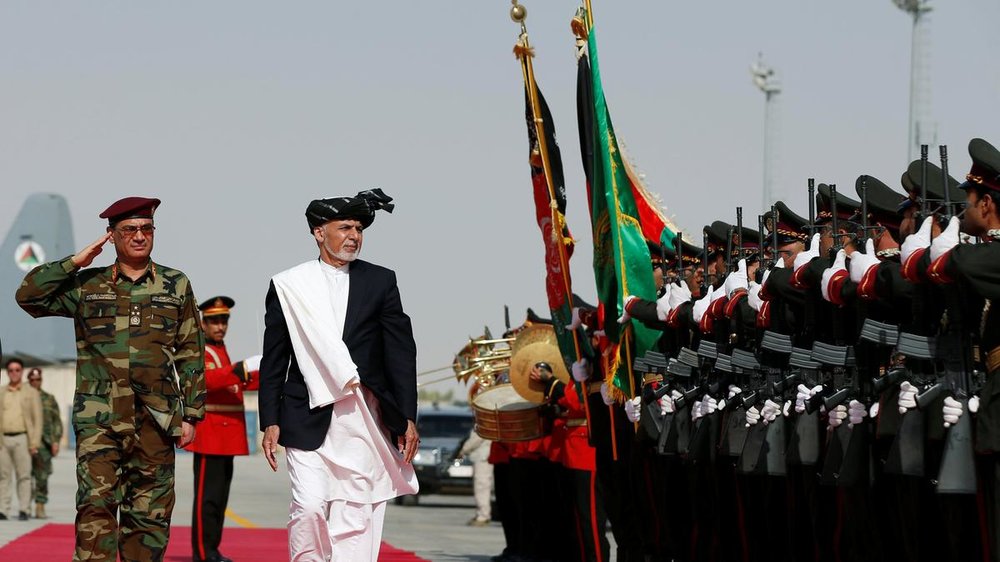Sharp rise in casualty toll of Afghan security forces since 2015

TEHRAN - As the security situation in war-ravaged Afghanistan deteriorates, the Afghan government has revealed the numbers that are both deeply alarming and highly distressing.
President Ashraf Ghani, addressing audience in Johns Hopkins University through a video conference, admitted that the casualty toll of Afghan security forces was at an all-time high.
“Since 2015, 28,529 of our security forces have lost their lives and become martyrs for our freedom,” he told the audience, a figure far higher than anything previously acknowledged by the government.
“I would like to salute the patriotism of the Afghan security forces, every single one of whom is a volunteer,” Ghani said. “We have no conscription, nobody is forced, and if there was not a patriotic impulse I don't think that people would sacrifice their lives for a pay of $200.”
While he stopped short of giving breakdown of that number, previous government estimates put security force death tolls at 5,000 in 2015 and nearly 7,000 in 2016. That means a total of about 16,500 this year and last year, about 25 a day or 175 a week — far more than Afghan government officials are usually willing to confirm.
Earlier, the Ministry of Interior Affairs had also confirmed sharp rise in casualties among security forces in the past few weeks after Taliban insurgents expanded their attacks on multiple fronts.
“This year, the Afghan security forces had vast movement across the country, whenever the role of security forces increases in war, it is natural the number of casualties would also increase,” the ministry spokesman Najib Danish said.
In a recent report, the U.S. Special Inspector General for Afghanistan Reconstruction (SIGAR) cited the NATO mission in Kabul as saying this summer's toll has been worse than ever for Afghan forces.
“From the period of May 1 to the most current data as of October 1, 2018, the average number of casualties the (Afghan forces) suffered is the greatest it has ever been during like periods,” the report said.
Alarmed by the revelations, the National Security Council (NSC) this week asked the Afghan forces to up the ante against insurgents across the country. A spokesman for the NSC said in a recorded video message that the decision was made to ensure the safety of people and reduce casualties among government forces.
“The National Security Council has asked the security and defense agencies to increase their offensive operations against the enemy in all parts of the country to safeguard people’s lives,” the NSC deputy spokesman Tariq Aryan said. “Currently, our National Security and Defense Forces are fighting against the enemies of the people in different parts of the country.”
In recent weeks, Taliban launched its complex offensives in multiple provinces across the country – Jaghori, Khogyani and Malistan districts in Ghazni; Dasht-e-Archi in Kunduz; Farah city in Farah; Barka and Dahan-e-Ghori districts in Baghlan; and Trinkot in Uruzgan to name a few.
According to reports, fighting is raging on in Ghazni’s Malistan and Jaghori districts despite the Ministry of Defense claiming that reinforcements had been sent there to repel the attack.
Pertinently, Moscow hosted a landmark conference on Afghanistan last week that saw the participation of Taliban representatives and officials from nearly a dozen countries. Many experts have questioned the wisdom of talking to the insurgent group while it continues to carry out deadly offensives across Afghanistan. Dialogue and violence, they say, cannot go together.
